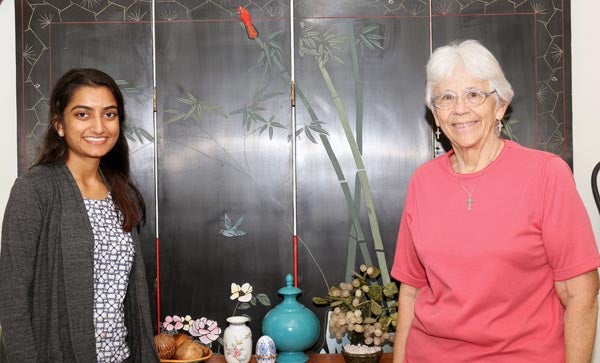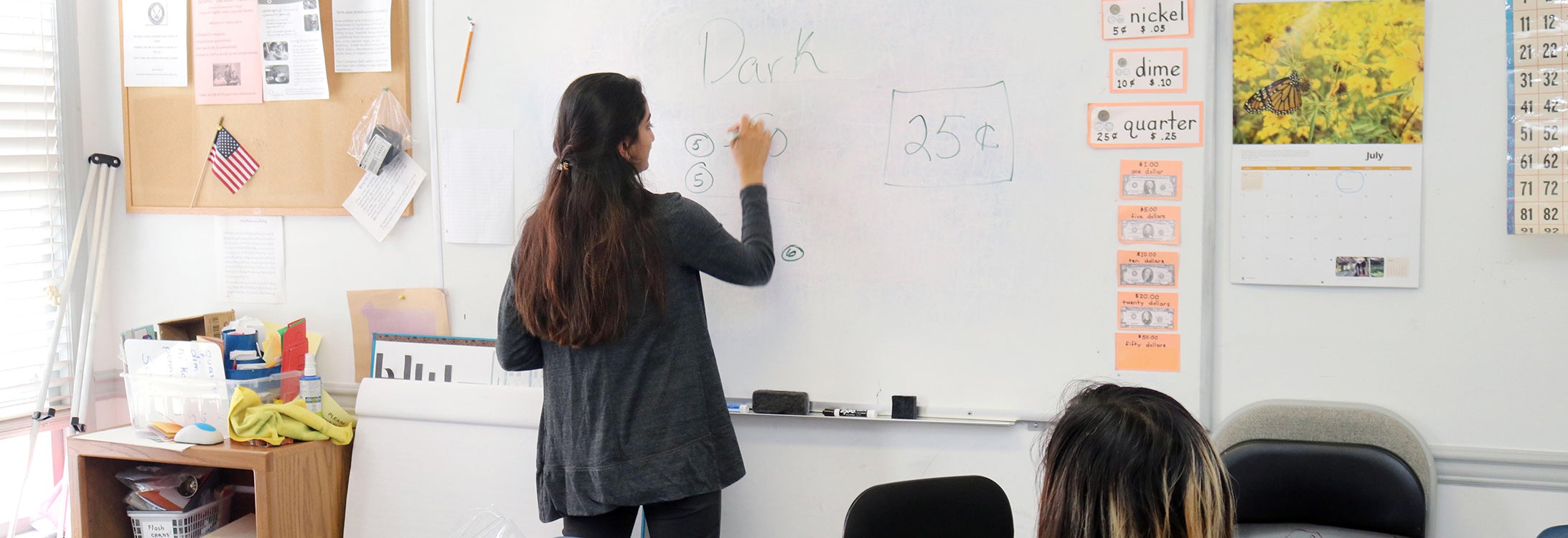HAVING FAITH
PFI intern helps refugees at New Bern ministry
Across the globe, more than 24 million refugees faced political, cultural and religious persecution in 2018.
With help from East Carolina University intern Nilam Patel, one New Bern organization is helping some of those refugees start new lives in eastern North Carolina.
For more than 25 years, Interfaith Refugee Ministry has dedicated itself to helping the world’s most vulnerable people rebuild their lives after fleeing their home countries. Patel, who’s partnering with the ministry through the SECU Public Fellows Internship Program, has seen what it’s like up close and personal for refugees trying to start anew in a strange country.
“I never realized that eastern North Carolina has the refugee population that it does,” Patel said. “I’m from Fayetteville, so I’ve been exposed to the military population in the region, but I never imagined how many families are here because they’ve been forced to leave their country due to circumstances beyond their control.”

Patel and Karen Bradt, an English as a second language training coordinator at Interfaith Refugee Ministry, worked together to provide refugees educational classes.
North Carolina ranked 10th in the nation last year for top refugee resettlement states. Some of those resettlements took place with assistance from Interfaith.
“The refugees we serve primarily come from Myanmar (Burma) and the Democratic Republic of the Congo,” said Karen Bradt, an English as a second language (ESL) training coordinator at Interfaith. “However, we’ve seen refugees from all over the map. We’ve had Hmong, Vietnamese, Cambodians, Afghanis, Columbians, Cubans – you name it. We’ve also had nearly every religion come through our doors from Christians to Muslims to Buddhists. We’ve seen it all.”
The ministry prides itself on helping refugees pick up basic life skills in their new home country. Interfaith offers ESL classes, cultural orientation courses, and assists refugees in finding short-term housing and local jobs.
As a public health major with a focus on community health, Patel was skeptical about how her internship would translate to her course of study. After a few weeks with Interfaith, that apprehension dissolved.
“At first I didn’t see how this would tie into my major,” Patel said. “But I’ve always wanted to help people and this internship has reinforced that. I’ve learned how to talk to new people, how to share information with them in effective ways and how to organize volunteers for community events. I’m still getting used to being called ‘teacher’ and ‘ma’am,’ but it’s been exciting to work with this group and learn about a new population of people that I didn’t know were even here.”
As her first ESL class of the day begins, Patel grabs a humongous bag of change and carries it into the classroom. The refugees are learning about the different types of currency used in the United States, a skill Patel said many take for granted.
“People often look down on refugees, but these people were making positive contributions to their home countries before they were forced to flee,” she said. “Think if you went over to their country. You’d be out of place in a new home, too. I’ve always believed everyone should have an equal opportunity to succeed, no matter where you’re from, and Interfaith is providing that chance.”
In addition to teaching ESL courses, Patel updated Interfaith’s volunteer lists, helped recruits new volunteers at community events, and assisted a refugee family with moving into temporary housing.
Bradt said that providing chances for students to interact with refugees, like internships supported by the PFI program, are vital to keeping Interfaith’s mission going.
“These internships help us inform the public about what we’re doing and about the needs refugees face when coming to North Carolina,” Bradt said. “We’re able to show more people that refugees aren’t a burden. College students like Nilam can be the voice of our people and inform others. It doesn’t matter what religion or political party you identify with. Refugees are human being and they need our help.”
In Fiscal Year 2018, the United States accepted 22,491 refugees, its lowest mark since Congress passed the Refugee Act of 1980. The U.S. resettlement screening process is intense, as refugees undergo iris, fingerprint and facial scans, six separate background checks, permission from eight government agencies, and three in-person interviews before they are considered for the program.
Despite these obstacles, Patel is confident Interfaith will continue to help those seeking a home eastern North Carolina.
“The work they do here is amazing,” she said. “It’s really opened my eyes and had an impact. Seeing these families walk off a plane and take on the challenge of rebuilding their lives is inspiring. I’ve been grateful for this internship opportunity and getting to see it in action.”
